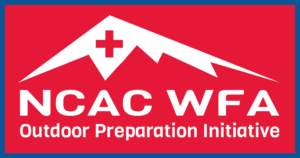 All four of the BSA High-Adventure bases (HAB) require at least one person per trek (two per trek at Philmont Scout Ranch) to be current in Wilderness First Aid (WFA) through an approved provider. We want your trip to be safe and successful, and making certain that you have proper training certifications prior to launch is a big step towards that. Read on for tips on how to ensure that you’re prepared for that next high adventure trip, and how to verify that your current certifications meet BSA requirements.
All four of the BSA High-Adventure bases (HAB) require at least one person per trek (two per trek at Philmont Scout Ranch) to be current in Wilderness First Aid (WFA) through an approved provider. We want your trip to be safe and successful, and making certain that you have proper training certifications prior to launch is a big step towards that. Read on for tips on how to ensure that you’re prepared for that next high adventure trip, and how to verify that your current certifications meet BSA requirements.
Last fall we informed NCAC leaders about a third-party vendor providing WFA training without proper certifications. We continue to receive reports from Scouters that certifications for WFA that they received from a third-party vendor do not satisfy the requirements for High-Adventure as defined by BSA.
Your safety is of paramount importance to us, which is why we recently introduced our own WFA course to provide certifications suitable for both our High-Adventure Camp at Lenhok’sin and BSA’s 4 High-Adventure Bases. Information on NCAC WFA courses can be found at: www.ncacbsa.org/opi-wfa.
If you’ve already received a certification via a third-party vendor, please take the time to make certain it is current and valid. You can verify an ARC WFA certification by visiting redcross.org/take-a-class/digital-certificate. Simply search by your Email Address; by First Name, Last Name, Year and Month (when class was held); or by Certificate ID. If you also received a CPR certification with your WFA course, you can check it there too.
If you find that the ARC WFA certification you hold is NOT showing as valid within the ARC database but should be, we ask that you contact us directly. Please complete this form to report the situation and select “Certification Issue” for the topic.
If you do decide to use a third-party provider, we encourage you to verify their credentials via The American Red Cross or other governing agency prior to beginning any course. Directions for checking an instructor’s credentials prior to taking a class, can be found here. Be wary of providers who claim to “know” or “keep lists” of BSA requirements, but who are unable to provide BSA approved certifications for WFA per BSA WFA and High-Adventure requirements.To learn more about BSA approved providers and requirements, please visit BSA’s page on WFA and High-Adventure requirements at: https://www.scouting.org/health-and-safety/training/wilderness-fa/
As always, if you have questions or concerns about a provider, please contact a Council professional for assistance. Your safety is our priority. Help keep Scouting safe for all. Get trained by a certified professional and make sure your certifications are up to date and valid.

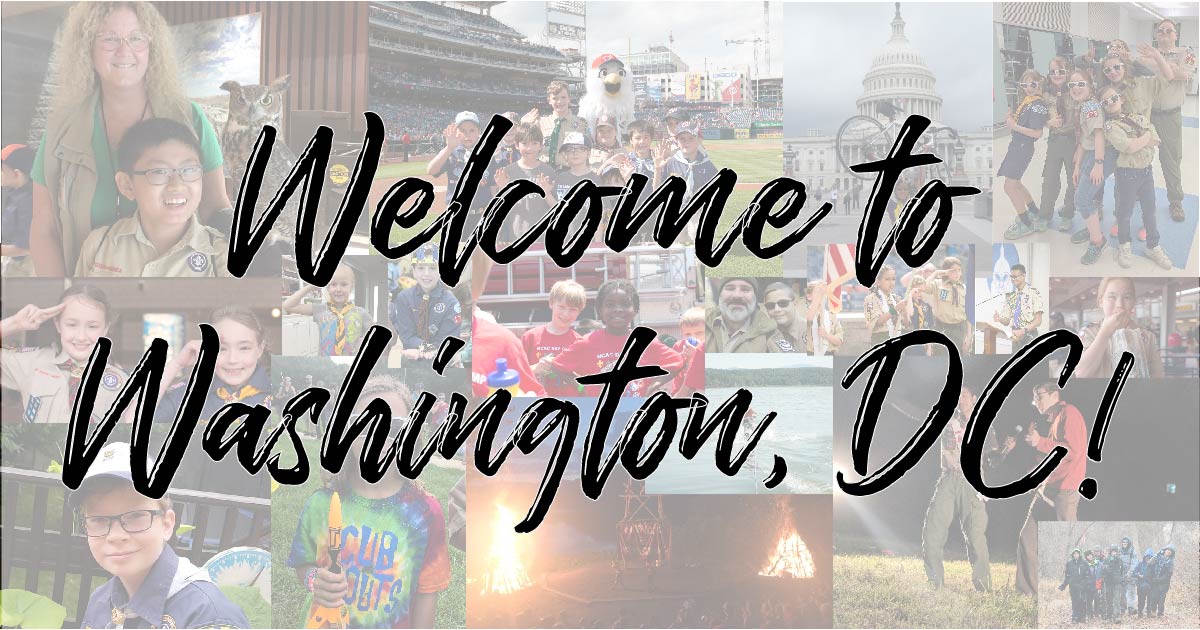
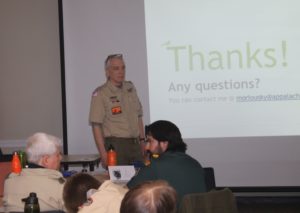 The National Capital Area Council (NCAC) Outdoor Ethics Committee recently held it’s fourth annual Mid-Atlantic Outdoor Ethics Community Meeting at the Marriott Scout Service Center. The event brings together Leave No Trace Trainers and Master Educators from around the region to receive updates on the latest trends in Outdoor Ethics, to share information, and enjoy fellowship. This year’s event drew 35 participants including the Leave No Trace State Advocates for Maryland, Virginia, and Pennsylvania, the Council Outdoor Ethics Advocates for NCAC, Hawk Mountain Council, Cradle of Liberty Council, Garden State Council, and the Colonial Virginia Council, and the BSA Area 6 Outdoor Ethics Advocate.
The National Capital Area Council (NCAC) Outdoor Ethics Committee recently held it’s fourth annual Mid-Atlantic Outdoor Ethics Community Meeting at the Marriott Scout Service Center. The event brings together Leave No Trace Trainers and Master Educators from around the region to receive updates on the latest trends in Outdoor Ethics, to share information, and enjoy fellowship. This year’s event drew 35 participants including the Leave No Trace State Advocates for Maryland, Virginia, and Pennsylvania, the Council Outdoor Ethics Advocates for NCAC, Hawk Mountain Council, Cradle of Liberty Council, Garden State Council, and the Colonial Virginia Council, and the BSA Area 6 Outdoor Ethics Advocate.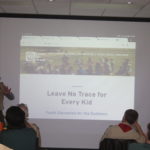 The group received an update from Paul Sanford, National Director of Recreation Policy at the Wilderness Society. Paul gave a great overview of the Wilderness Society, land designation under the Wilderness Act, the importance of wilderness, and the current issues in wilderness recreation. His talk was very well received by the group and will be used to help shape our ongoing awareness and educational efforts. Paul indicated that the Wilderness Society will soon be releasing a wilderness curriculum aimed at middle and secondary school age youth. We will post this information on the Outdoor Ethics page of the NCAC website once it is released.
The group received an update from Paul Sanford, National Director of Recreation Policy at the Wilderness Society. Paul gave a great overview of the Wilderness Society, land designation under the Wilderness Act, the importance of wilderness, and the current issues in wilderness recreation. His talk was very well received by the group and will be used to help shape our ongoing awareness and educational efforts. Paul indicated that the Wilderness Society will soon be releasing a wilderness curriculum aimed at middle and secondary school age youth. We will post this information on the Outdoor Ethics page of the NCAC website once it is released. Community leadership takes many forms. The National Capital Area Council Boy Scouts of America is fortunate to have so many hardworking volunteers committed to Scouting programs in our area. We appreciate all the ways that the work of our volunteers contributes to Scouting’s mission, and that’s why we want you to know about an easy, powerful way you can support us while doing what you’re already doing. That way is workplace giving.
Community leadership takes many forms. The National Capital Area Council Boy Scouts of America is fortunate to have so many hardworking volunteers committed to Scouting programs in our area. We appreciate all the ways that the work of our volunteers contributes to Scouting’s mission, and that’s why we want you to know about an easy, powerful way you can support us while doing what you’re already doing. That way is workplace giving.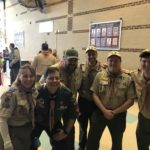
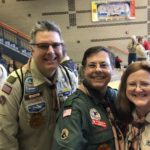 At University of Scouting nineteen Scouters from four Wood Badge courses were awarded their beads during a lunchtime ceremony attended by two hundred Wood badgers and supporters.
At University of Scouting nineteen Scouters from four Wood Badge courses were awarded their beads during a lunchtime ceremony attended by two hundred Wood badgers and supporters.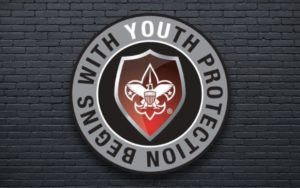 On March 1, 2019, the online YPT Course was replaced with an updated version.
On March 1, 2019, the online YPT Course was replaced with an updated version.